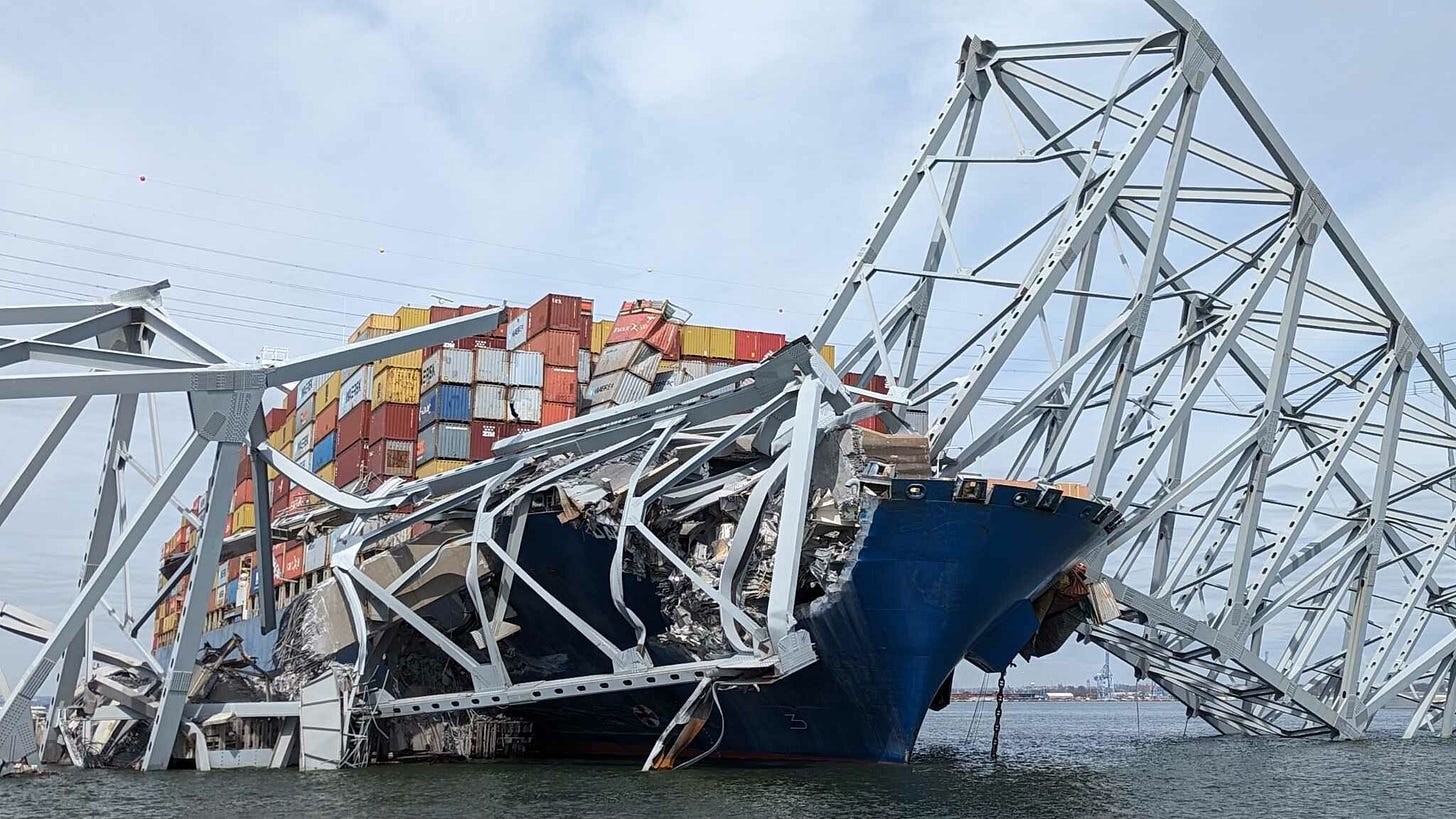Sometimes it takes a tragic event to expose the weakness of an entire system.
Consider, for example, the tragedy evolving when the “Dali” – a ship registered in Singapore to Grace Ocean Pte Ltd and managed by Synergy Marine – set off on a 27-day cruise from the Port of Baltimore to Sri Lanka. The container ship hit a support structure on the Francis Scott Key Bridge – on which there were eight workmen – Tuesday, March 26, 2024, at 1:27 am.
The Jones Act
The weaknesses in the maritime system were created over a hundred years ago. The U.S. was trying to recover from the “double hitter” of WWI and the “Great Influenza,” aka “Spanish Flu,” when President Warren G. Harding signed the Merchant Marine Act of 1920 (46 USC 50101).
This Act also became known as the “Jones Act” after its sponsor Senator Wesley Jones, who wanted to ensure that his home state of Washington would have the exclusive rights to ship goods to Alaska.
The Jones Act requires that any cargo shipped between U.S. ports must be built, owned, and operated by U.S. citizens (U.S. based companies) or permanent residents (Italics added).
The weakness was that for maritime issues the Jones Act replaced the free enterprise system of American ingenuity with governmental regulations and control.
The Act also created a monopoly for U.S. builders, owners, and operators, for all the maritime trade between the U.S. mainland and Alaska now includes Hawaii, Puerto Rico, and Guam, as well as between U.S. mainland ports.
Unions under the Jones Act
This monopoly enabled the maritime unions to demand – and the companies to grant – contracts that added an estimated 40-60% to the cost of shipping, plus added restrictive work rules.
I encountered the issues when, as a young lawyer, I was called into a meeting that began with Captain Marcus saying “The Gulf Oil fleet of tankers is the only one under U.S. flag whose officers are not unionized. Of course, all the crews are unionized. We are considering buying a Shell Oil tanker whose unionized officers have a clause that requires unionization go with the tanker; should we buy it?”
My thoughts leapt to the maritime unions governed by the Railway Labor Act, 45 USC 151 (1926), that is administered by the National Mediation Board whose purpose of avoiding any interruptions can make negotiations quite lengthy and costly for employers.
Wow, I thought, labor relations are so important in the maritime industry that a room full of executives my father’s age are relying on me for their decision. While I can’t share my opinion, I can say that Gulf did not purchase the tanker.
Interestingly, the Jones Act so increased the cost to ship petroleum products from Texas refineries that companies-built pipelines to avoid shipping the products.
Decades later it was unchanged as a labor lawyer friend always carried a copy of a maritime labor contract with him, even when not working on them, so that in the event of his untimely demise his widow would have the opportunity to apply for those benefits.
Avoiding the Jones Act
The Dali avoided being regulated by the Jones act by not being built in a U.S. shipyard. That would have provided private industry ingenuity and/or U.S. government oversight, but by being built by the Hyundai Heavy Industries in South Korea, they avoided dealing with the Jones Act by being built for the non-U.S. owner Ocean-Bulk Container Management of Greece.
In 2016, the sale of the Dali to the Singapore company Grace Ocean Pte Ltd, avoided the Jones Act and the addition – added in 2002 – avoided the requirement that ballast and equipment must be inspected by the Maritime Administration before sale (46 USC 861 (2002).
The Dali leasing to Synergy Marine Group, a Singapore company, avoided the Jones Act of being operated by a U.S. company
On March 26, 2024, the Dali was operated under lease by Maersk, a Danish company.
Maersk operating it with a crew of 22 from India avoided the Jones Act.
Thus, the Jones Act set in motion having a ship built in Korea, for a Greek company, who sold it to a Singapore company, who leased it to another Singapore company, who leased it to a Danish company to operate with a crew from India.
Sadly, in the maritime cases I litigated, these types of convoluted transactions occurred frequently.
The Dali
The Dali was 984 feet long and carried 4,700 containers, each of which weighed 5,000 pounds empty for an additional weight of 23,500,000 pounds that could have been avoided if the government had eliminated theft on the docks that caused companies to use sealed containers.
The current U.S. administration’s losing control of the Red Sea caused the Dali to add ten additional days of cruising to their 17-day cruise to Sri Lanka.
The additional ten days meant the 27-day cruise required that the Dali carry 1.8 million gallons of fuel, or an additional 58% or 666,666 more gallons than if the Red Sea were open, lowering the weight of the load, increasing fuel efficiency and the potential damage to the environment.
March 26, 2024
The events of March 26, 2024, and the responses, will be discussed in Part 2.



Fascinating! CJC
Please correct a few typos in the article. Case in point: it should read Sri Lanka and NOT Ski Lanka. Thanks!!!